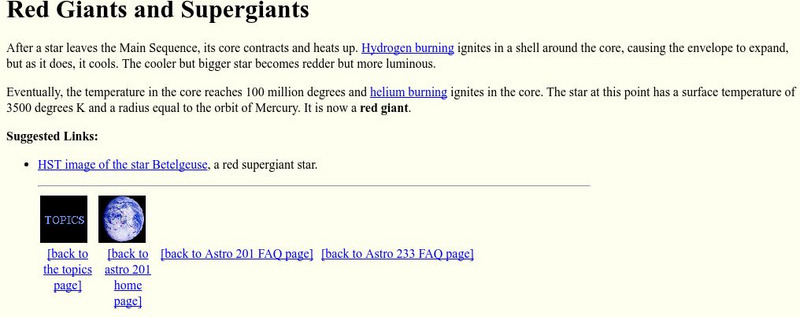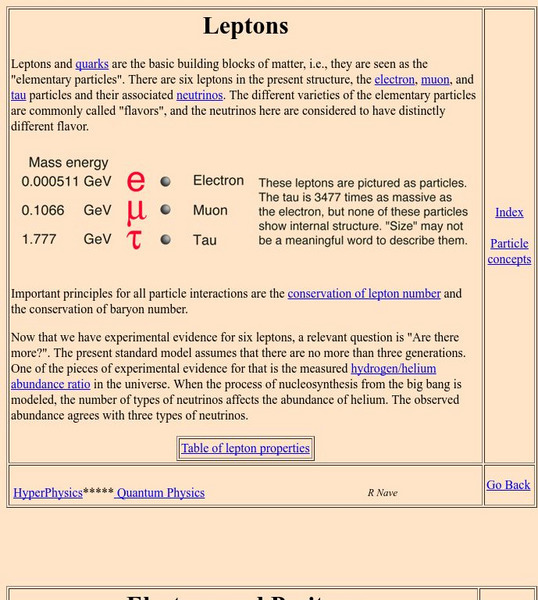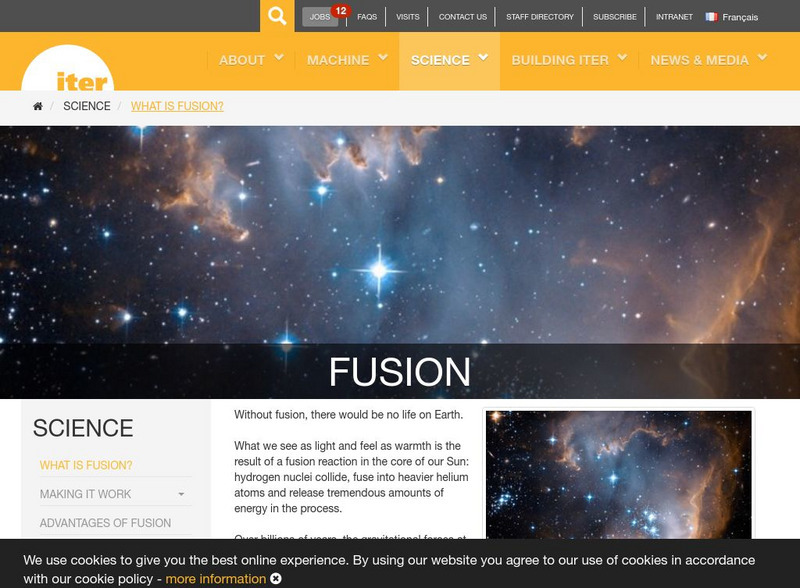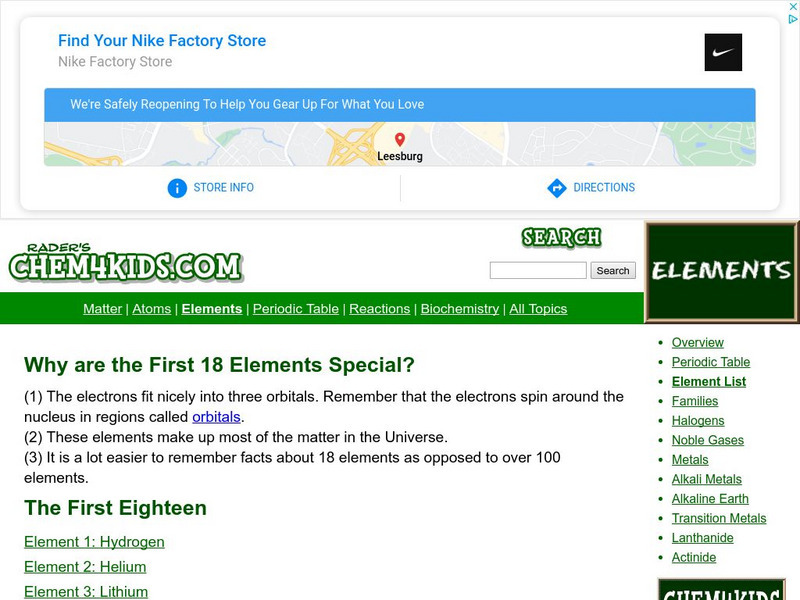Cornell University
Cornell University: Astronomy: Red Giants
This Cornell University Astronomy Department site surveys the the hydrogen and helium burning that takes place in the evolution of a red giant. Links to related information.
Khan Academy
Khan Academy: Infographic: Chemical Abundances: The Sun
Did you know our sun in composed of mainly hydrogen and helium? This infograph reviews over all the chemicals that can be found in our sun.
Ducksters
Ducksters: Astronomy for Kids: Stars
Kid's learn about the science of stars like our Sun. Giant hot balls of gas and energy made mostly of hydrogen and helium.
Concord Consortium
Concord Consortium: Nonbonding
Bring two molecules together and observe potential energy changes.
Georgia State University
Georgia State University: Hyper Physics: Leptons
This site has a definition and properties of Leptons, the "Basic building blocks of matter." There are links to table of properties and more information.
Other
Iter: What Is Fusion?
Fusion is the process at the core of our Sun. What we see as light and feel as warmth is the result of a fusion reaction: hydrogen nuclei collide, fuse into heavier helium atoms and release tremendous amounts of energy in the process.
NASA
Nasa Space Science Data Archive: Galileo Project Information
This is the homepage of all of the archived information about and from the Galileo Mission. Included is data from the flybys of Venus, Earth, Moon, and Asteroids Gaspra and Ida, as well as the current data from Jupiter and its moons. See...
US Department of Energy
Fus Ed Web: Physics of a Fundamental Energy Source
An excellent resource on nuclear fusion! Using incredible graphics and excellent discussion, this site (with its several pages) provides an exhaustive online course on the topic. Click on the link for "a Guided Tour" and begin.
Other
Virtual Chembook: Density Applications With Gases
DENSITY is a physical property of matter, as each element and compound has a unique density associated with it. Density defined in a qualitative manner as the measure of the relative "heaviness" of objects with a constant volume. For...
Chem4kids
Chem4 Kids: Element List
Site provides the first 18 elements found in the Periodic Table. Click on an element to discover where it is found and what it's characteristics are.








